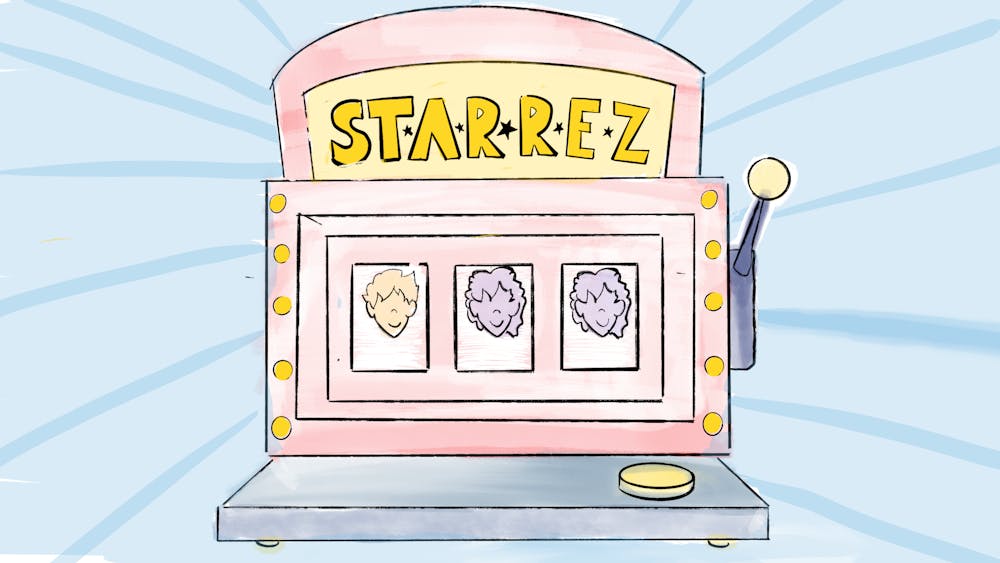Would you prefer a loud or quiet dorm? What are your pet peeves? How do you feel about guests? Do you have a preferred room temperature? What is the general cleanliness of your room? You agonize over what your favorite TV show says about you or how to articulate your political ideology as honestly — yet sympathetically — as possible. Maybe you decide that translating yourself into roughly 24 categories is impossible. Every day, a post from @upenn2026.info shows up in your Instagram feed, and you swipe through it analyzing, wondering, "could this be my roommate?"
There is college and then there is what college looks like on TV. American college, romanticized by films like Pitch Perfect or vlogged by Olivia Jade, has been immortalized to a singular, positive experience. The expectations are towering. Absent from the dorm tours and fraternity parties, however, are the less glorious aspects of leaving home. The uncomfortable reality is that I, alongside the rest of the Class of 2026, will be primarily responsible for my health, finances, and academics this fall. At a time when having reliable friends is critical, we must build a social circle from scratch. We hope that finding a roommate ourselves will either provide this support or at the very least circumvent one potential catastrophe. But what if the answer was to do nothing at all?
The random roommate — for decades, a hallmark of the first-year experience — began to disappear in the early 2000s when universities designed matching software. Some replicated the paper surveys of the past. But others, such as the web-based roommate searching program at Emory University in 2003, attempted to improve the experience by letting first years choose their own roommates based on online profiles and preferences. With the rise of social media companies like Facebook only a few years later, more and more students gave up the random roommate. Software, like Roomsurf and RoomSync, was created to capitalize on this new market, and universities signed contracts with these software creators.
While some schools allow students to look up one another in their housing portals, Penn does not — perhaps to discourage students from requesting a roommate. To my initial surprise, my search for a “perfect” roommate ended with Penn’s brief survey. While I’m nervous, it’s not clear that going random poses a more significant level of risk. Katrina Pawvluk from North Carolina State University tracked why students requested a roommate change and found that — in descending order — sleep patterns, study habits, cleaning expectations, and guests in the room were the most commonly reported reasons. “If a best friend comes out of it, it’s a bonus. It’s a win,” Pawvluk said in a webinar organized by StarRez. “But if you’re in a respectful living environment, you could have separate interests and activities but still come together and share that space in harmony.” A survey like Penn’s, not personality, best determines roommate success outcomes.
Additionally, finding a roommate does not guarantee a positive housing arrangement. Sophomores at Quaker Days told me they saw equal success with peers who found their roommates and those who went random. Instagram posts, just like Yelp reviews or Tinder profiles, are limited by their medium in what they can express. Translating our personalities into words and phrases like "boba lovers" or "ENFPs" is reductive and superficial. As we scroll through @upenn2026.info, we judge people — not based on who they are, but by how they appear.
Rather than being a high-stakes endeavor, first-year housing is a rare opportunity for growth and change. Outside of imprisonment and military service, there are very few opportunities to live with someone completely random. Exposure to someone — with different experiences and opinions — could be transformative, whereas choosing similarity and predictability could be stifling. In 2011, professor Dalton Conley, a liberal from New York, reflected on his own experience of rooming with Tony from Sacramento, Calif., a Republican. They learned to get along, an experience that was disappearing as digital technologies replaced randomness.
Conley’s piece is definitively prophetic. As the information revolution expands, we fully epitomize what I call the "Optimization Age." We have access to a cost-benefit analysis at every moment, in the form of restaurant, film, and driver ratings, dating profiles, and even amusement park ride wait times. While previous generations relied on familial networks or intuitive feelings to make decisions, we use data. While this endless quest for efficiency provides a sense of control, it chains our minds to the future, robbing us of life in the present.
Unfortunately, the entropic nature of our universe dictates that we can never completely optimize our lives. The only certainty is disorder. When a difficult, uncontrollable situation arises — as it must — will we be ready? On the other hand, sitting with the discomfort of an unknown roommate might provide valuable preparation for the future. If you love each other, great. If you hate each other, you learn to live together. Outside of college, you cannot filter people by their Myers-Briggs personality type. Working with people who are very different from ourselves is an inescapable part of the human experience. Dispensing hours scouring Instagram for a roommate is not a meaningful use of time, nor is it ostensibly successful. The same could be said for choosing a restaurant. Embrace the discomfort and go random.
Caroline Magdolen | Using random housing assignments to build a stronger community
Emily Chang | Housing selection was a mess. Here’s how we fix it.
EVE ROSENBLUM is an incoming College first year studying philosophy from St. Louis, Mo. Her email address is everose@sas.upenn.edu.









